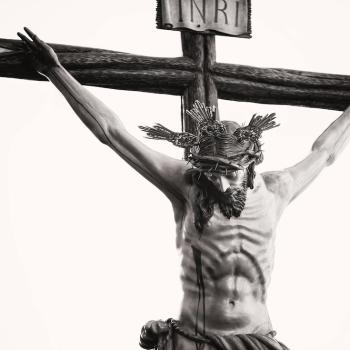
Vatican City, Jun 29, 2016 / 03:15 am (CNA/Europa Press).- On Wednesday Pope Francis gave 25 new archbishops the pallium, encouraging them to remain strong in prayer, which he said helps in staying open to God’s surprises, rather than closing in on oneself.
“Prayer enables grace to open a way out from closure to openness, from fear to courage, from sadness to joy. And we can add: from division to unity,” Pope Francis said June 29, the Solemnity of Saints Peter and Paul.
He pointed to the “clear contrast” between opening and closing in the day’s readings, beginning with three examples of “closing” found in the first reading from Acts.
The first appears when Peter is locked in prison, then the community gathers behind “closed doors,” and finally Peter knocks at the “closed door” of a woman named Mary, the mother of John called Mark, after being set free.
In each of these moments, “prayer appears as the main way out,” the Pope said, explaining that it’s “a way out for the community, which risks closing in on itself out of persecution and fear.”
It’s also a way out for Peter, “who at the very beginning of the mission given him by the Lord, is cast into prison by Herod and risks execution,” Francis said, noting how the Christian community had prayed for Peter while he was in prison. As a result, the Lord sends an angel to free him.
Prayer, “as humble entrustment to God and his holy will, is always the way out of our becoming ‘closed’ as individuals and as a community,” he said.
Pope Francis spoke to pilgrims gathered inside St. Peter’s Basilica for his Mass celebrating the Solemnity of Saints Peter and Paul, patrons of the city of Rome. During the ceremony, he blessed the pallium to be bestowed on the 25 new metropolitan archbishops who were present, all appointed throughout the previous year.
The pallium is a white wool vestment, adorned with six black silk crosses. Dating back to at least the fifth century, the wearing of the pallium by the Pope and metropolitan archbishops symbolizes authority as well as unity with the Holy See.
The title of “metropolitan bishop” refers to the diocesan bishop or archbishop of a metropolis, namely, the primary city of an ecclesiastical province or regional capital.
Traditionally the Pope bestows the stole to the new archbishops June 29 each year. The rite is a sign of communion with the See of Peter. It also serves as a symbol of the metropolitan archbishop’s jurisdiction in his own diocese as well as the other particular dioceses within his ecclesiastical province.
However, as a sign of “synodality” with local Churches, Pope Francis decided in 2015 that new metropolitan archbishops will officially be imposed with the pallium in their home diocese, rather than the Vatican.
So while the new archbishops still journey to Rome to receive the pallium during the liturgy with the Pope, the official imposition ceremony is in their home diocese, allowing more faithful and bishops in dioceses under the archbishop’s jurisdiction to attend the event.
In his homily, Pope Francis also pointed St. Paul and his experience of liberation in finding “a way out of his own impending execution.” In addition to praising God for giving him the strength to evangelize, Paul speaks of “a much greater opening” to eternal life, “which awaits him at the end of his earthly race.”
By contemplating this passage, “we can see the whole life of the Apostle in terms of ‘going out’ in service to the Gospel,” he said.
Francis then turned to Peter’s confession of faith and the mission entrusted to him by Jesus. Jesus, he said, “shows us that the life of Simon, the fishermen of Galilee – like the life of each of us – opens, opens up fully, when it receives from God the Father the grace of faith.”
By responding to Jesus’ call, Simon Peter sets out on “a long and difficult journey,” but one “that will lead him to go out of himself, leaving all his human supports behind, especially his pride tinged with courage and generous selflessness.”
Francis noted how Jesus had prayed that Peter’s faith would not fail, and how he looked on Peter with compassion after the apostle had denied him.
At that moment, “Simon Peter was set free from the prison of his selfish pride and fear, and overcame the temptation of closing his heart to Jesus’s call to follow him along the way of the cross,” he said.
The Pope then turned to the scene in Acts when Peter, after having been set free, knocks on the door of Mary. The servant Rhoda, although joyful in recognizing Peter’s voice, doesn’t let him in, but instead runs to tell her mistress.
Pope Francis said that the account, “which can seem comical, makes us perceive the climate of fear that led the Christian community to stay behind closed doors, but also closed to God’s surprises.”
“This detail speaks to us of a constant temptation for the Church, that of closing in on herself in the face of danger,” he said, but noted that “the small openings through which God can work” are also visible, and can be seen by how many in the house “had gathered and were praying.”
Before concluding his homily, Pope Francis offered a special greeting the delegation sent by “the beloved” Ecumenical Patriarch Bartholomew of Constantinople, led by His Eminence Methodios, Metropolitan of Boston.
Among the 25 new metropolitan archbishops to receive the pallium from Pope Francis was one American, Archbishop Bernard Anthony Hebda, who oversees the diocese of St. Paul and Minneapolis.















